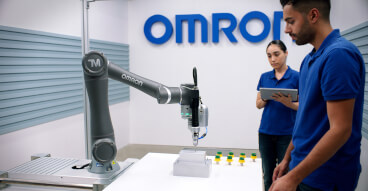Automation blog

Monitor machine stability with data science
16 July 2021 Do you have a machine with no problems? You’re probably already collecting production and machine data, but not using it. With a quick scan of your data, it is possible to judge the usability and quality of the data and start using the value inside the data. This will help you define the first or next step towards a data enabled organization.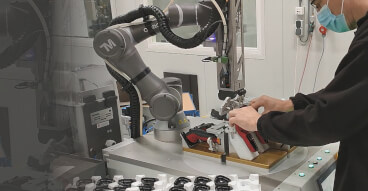
Professional help for personal care: Putting a cobot to work
09 July 2021 Of the many processes involved in finalising a consumer product, the final step can often be the most intricate. For this OMRON customer, the last step in production is to fasten the cover holding screw, closing up the unit—in this case, an electric shaver. Traditionally, the full process was completed manually, with an electric screwdriver in a multi-step process. This repetitive task is an ideal candidate for the help of an OMRON cobot.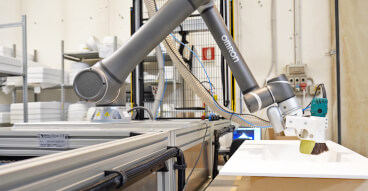
Cobot boosts production by 15% at Topcustom
23 June 2021 Topcustom srl, an Italian producer of custom-made bathroom sinks, has recently transformed part of its operations by deploying a collaborative robot (cobot) from OMRON. The new cobot is being used to automate all the finishing operations of Topcustom’s products made from Ocritech. This is a light material that is easy to work, guarantees perfect hygiene and has excellent resistance to UV rays.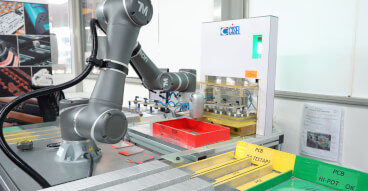
Cisel ensures traceability, safety and quality by testing printed circuit boards with a cobot
17 June 2021 Cisel is an Italian company that specialises in the design and production of flexible printed circuit boards (PCBs) for the automotive, civil engineering and manufacturing industries. The company recently chose an OMRON TM5 collaborative robot (cobot) to automate the electrical testing of boards used in the power steering system of a leading automotive manufacturer.
UV-C Robot helps businesses win the fight against Covid
16 June 2021 As the UK’s customer-facing businesses plan their reopening strategies, keeping consumers and staff safe from Covid will be a key priority. In a bid to prevent future outbreaks at high footfall, everyday environments like supermarkets, bars and gyms, we have teamed up with UV Systems UK to produce an autonomous robotic sterilisation system that guarantees to kill the virus without damage or harm to surrounding goods.
Cobot ensures precise assembly of magnets for LITMAT’s drain plugs
03 June 2021 Collaborative robots (cobots) are being used more and more extensively, in a range of different industries and across a wide variety of applications. They can make a significant difference to the efficiency and productivity of the production cycle. One company that is enjoying such benefits is LITMAT SpA.
Plastics in consumer goods manufacturing: Seven automation tips for greener packaging
29 April 2021 Hygiene or environmental protection? Preferably both! Companies in the consumer goods industry are increasingly asking themselves what alternatives they have to plastic packaging and how they can act greener, more efficiently, and yet still safely. Innovative packaging lines, robotics and artificial intelligence offer support.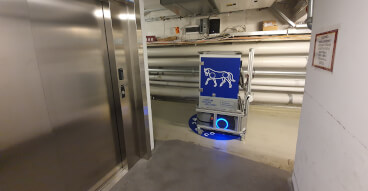
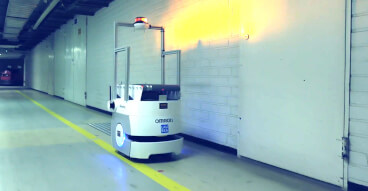
Mobile robot transports waste for Kymenlaakso Central Hospital in Finland
07 April 2021 Waste transportation and logistics planning require a lot of work in hospital environments. Waste shipment is also a physical task that places demands on both time and human resources.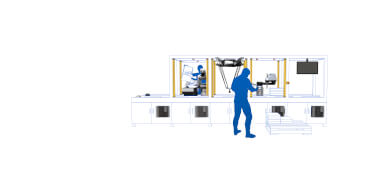
Choosing a robot for a smart factory
02 April 2021 Anyone planning to move towards a smart factory needs to choose carefully when considering possible robotic solutions. Should it be an industrial robot or a collaborative robot (cobot)? Autonomous mobile robot (AMR) technology or a fixed selective compliance assembly robot arm (SCARA)? The answer will depend on your specific needs.
Cobot Dashboard: How to visualize data for OEE improvement the smart way
16 March 2021 The factory of the future is not only based on a well-orchestrated interaction of the most diverse machines, robots, sensors, and AI technologies. Entrepreneurs and decision-makers are also increasingly faced with the challenge of reconciling the vast amounts of data collected by the various production lines and making the best possible use of it to support their decisions. Not only does a comprehensive data strategy need to be developed. There are also technologies required that process and present the data in such a way that issues are immediately identified before major problems occur.
Automation for zero touch: Improving safety, quality and efficiency in F&B
15 March 2021 Recent innovations in automation, robotics, image processing and artificial intelligence (AI) can help companies to migrate towards zero touch processes.